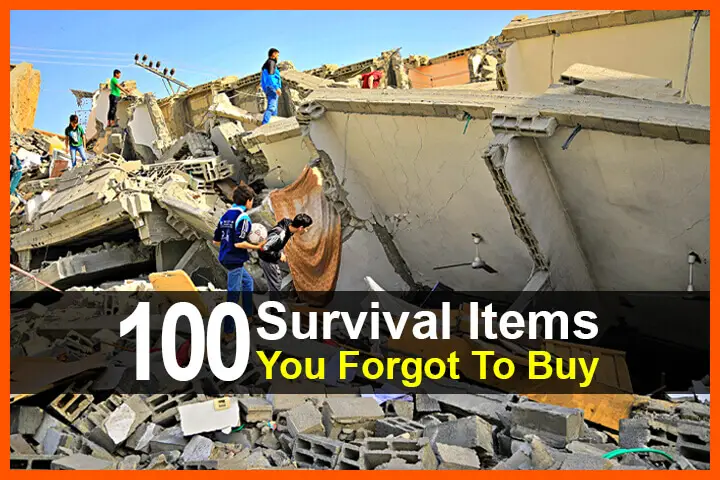Some of the links in this post may contain affiliate links for your convenience. As an Amazon associate I earn from qualifying purchases.
We have all known people who save everything. My grandmother is one of them. If there are four green beans left in the pot, she puts them in the freezer. I remember one specific visit with her, 27 years ago, where she asked me to get her a bowl of ice cream. What I thought was the container of vanilla ice cream was actually a container of saved bacon grease.
Grandma grew up during the Great Depression; those habits, ingrained in her when young, are still manifest today. It made me wonder: What can we do to promote a culture of self-reliance in our families?
As of this writing, my grandmother now 96 years old and still saving every last morsel and dollar. The family snickers a little bit about it. Yet we know she will not outlive her money or her things. Isn’t there something reassuring about that? She has always worked hard at being self-reliant. Will our children be able to do the same?
As I watch the news and look around me, I wonder if another Depression wouldn’t do us some good. It wasn’t too long ago when life wasn’t so convenient. Many in our society have lost the mindset that our grandparents had. We have instant and immediate food, entertainment, communication, and information. Instant everything, it seems. Many feel that things will always be as good as they are now, but history does repeat itself. Perhaps one of the most important things we can do is prepare the next generation for whatever may arise.
Like those who have habits from the depression, you can make self-reliance and preparedness a part of your family culture. One of the most effective ways to do this is to live it every day. Whether we have children of our own or are involved in an organization such as a church or school, we have the power to instill preparedness values. Now is the time for us to equip the younger generation with skills that will help them be confident and prepared for anything life may throw at them.
One thing I recommend if you have children is a weekly family council. Along with normal family business, make goals on implementing these principles of preparedness into your family. If you are part of another organization, teach classes or organize projects that encourage preparedness. Set the example by your actions.
There are at least five ways to increase this mindse:
Thriftiness and Frugality
The longstanding adage “Eat it up, wear it out, make it do, or do without”, still holds true today. The importance of being thrifty and frugal is often forgotten. Clothes can be mended, altered and remade into other items. I have seen curtains reused to cover chairs, a table cloth became pillow covers and adult size clothes were remade into clothes for a younger child. Learn ways to take other household items and re-purpose them.
Another way to pinch pennies is to find out where all of your pennies are going. There are many forms online that can be used to assist in budgeting. Record your family’s expenses for one month and then gather together to review them. Are there any non-essentials that can be eliminated? Involve family members in creating a budget. Teach them to differentiate between wants and needs and set financial goals together. Save money for a vacation or purchase that the whole family can enjoy. Budget additional funds to be set aside for large purchases, holidays, and for emergencies. Teach your kids now that it is not worth “keeping up with the Joneses.”
Try out some depression-era foods with your family and take note of the favorites.
Independence
This would include independence from anything that prevents us from living to our full potential. Avoid any habits or addictions that restrict your body and mind. Eat healthy, exercise, surround yourself with good friends, and strengthen yourself spiritually and mentally.
Look at your finances. What can you do to be financially independent? Do not get into the habit of using credit for purchases. Many people look at the monthly payment amount versus the real amount of an item. If you have debt, pay it down now. There are many websites available to help accomplish this.
Time is another area where you can be independent. Choose how to prioritize and use it wisely, which would include helping others. Teach this next generation the importance of being kind and charitable. Donate money and time to projects you feel are worthwhile. There are many opportunities available in your own community or help out with a need on the other side of the world. Either way, you will develop a deeper empathy towards others and an appreciation for what you have.

Industriousness
It may sound peculiar to encourage someone to actively work on being industrious, but in reality, creativity and achieving a harmonious life balance require a significant amount of energy. Take a moment to reflect on your current life circumstances. Search for ways to be resourceful. You may discover talents you did not know you had.
Are there any enterprising opportunities available that you could take advantage of? Another source of income could benefit you and those around you. It’s worth exploring ways to enhance your marketability in the workplace, whether that involves completing a long-pursued degree, enrolling in community classes, or even tapping into the wealth of free online courses that are readily available.
Look in your community. See if there is a need that could be filled by a skill that you possess. Teach those around you the importance of an honest work ethic.While industriousness is good, remember that wherever you are at in life, be there completely. When you are at work, work. When you are at home, leave work alone and enjoy your time with family and friends. If you need down time, take it.
Skills and Knowledge
We all have that friend or acquaintance who appears to possess a magical ability to do, create, or repair just about anything. Chances are, they didn’t acquire these skills overnight; rather, they invested time and effort into honing them. I am sure you know people who seem to be able to do, make, or fix anything. Chances are, they had to work on those skills often before they mastered it. Like them, you need to continue to learn and put what you learn into practice.
Through the magic of the internet, with a simple click, we can access tutorials and guides on a wide array of topics, from basic car maintenance to home repairs, first aid, and taking care of what we already own. Not only can you save money by doing these things yourself, you are free from depending on others to do them for you.
Yet, the benefits of self-reliance extend far beyond monetary savings. There is an undeniable sense of pride and accomplishment that accompanies the mastery of new skills. For example, planting your own garden not only reduces your grocery expenses and provides a source of fresh, wholesome produce but also offers much greater benefits. Gardening, along with other tasks, allow you to spend time with those close to you. Whether you’re working alongside a child, friend, or fellow community member, the act of coming together to learn and achieve shared goals forms stronger bonds. There is a sense of togetherness and learning that you cannot get anywhere else.
As you develop your skills, don’t forget the importance of passing them on. In a world where knowledge transfer often occurs through formal education or online platforms, personal guidance and mentorship hold significant value. By teaching those around you the art of self-sufficiency and hard work, you not only contribute to their empowerment but also ensure that valuable skills continue to be passed down through the generations. After all, if we don’t teach others how to work, who will?
Stockpiling
Aim towards having a year’s supply of clothing and food. This may seem like a daunting task, but it’s an achievable goal when approached systematically. The key is to take measured steps and not let the process overwhelm you. Let’s break it down into manageable stages to help you create a well-stocked supply while also saving money on groceries and essentials.
Make a list of the amounts of food and commodities that your family normally consumes in one day. Take that list and multiply it by 7. That is your one week supply. When you have a one week supply stored, continue until you have three months supply. Use and rotate your 3 month supply. Then focus on long term storage. Use these tips to help you save money on groceries.
Many foods, such as grains, beans, and pasta can have a shelf life of 30+ years. Clothing can be a bit of a challenge if you have growing kids. Looking at clearance racks and thrift stores can be an inexpensive way to work on storing clothes and shoes. If you sew, fabric is also be a great addition to your years supply. Do not forget to include any notions you may need.
Final Thoughts
As you begin to create a culture of self-reliance, you will feel more confident about your ability to withstand almost any hardship. We cannot depend on the government or charities to provide services and care for the millions of people across the nation when a disaster happens. It is essential that each individual and family do all they can to be responsible for themselves when needed. If we are wise and careful with our resources, we will be able to sustain ourselves through difficult times.
Learn more about Great Depression survival
What do you do to promote self-reliance in your family?
Originally published 5/27/2106.

















